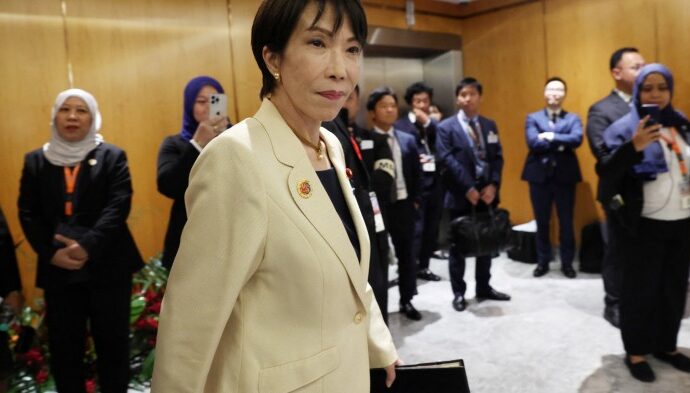
Unlock the Editor’s Digest for free
Roula Khalaf, Editor of the FT, selects her favourite stories in this weekly newsletter.
Japanese stocks rose to an all-time high on Monday after Shigeru Ishiba announced his resignation as prime minister and fired the starting gun on a leadership race.
Traders in Tokyo said stocks had risen in the expectation that Ishiba would be replaced by Sanae Takaichi, a right-wing disciple of the “Abenomics” policies of the late Shinzo Abe seen as likely to unleash more government spending.
Japan’s broad benchmark Topix, which tracks the whole Tokyo stock market, rose about 1 per cent as the yen softened to ¥147.51 against the dollar and exporter stocks surged.
Monday’s “Takaichi trade”, said brokers, also favoured property developers, as they anticipated that Takaichi would put pressure on the Bank of Japan to keep interest rates low.
Market concerns around increased fiscal spending under a new prime minister pushed yields on long-dated Japanese government bonds higher. The yield on the 30-year note climbed to 3.285 per cent, matching the all-time high reached last week.
Ishiba announced his resignation as leader of the Liberal Democratic party, Japan’s dominant political group, at a press conference on Sunday. His successor as party leader will become Japan’s prime minister. A leadership vote is likely to be held early in October.
Takaichi, who lost to Ishiba in a leadership contest last year, has not yet formally announced that she will be a contender.
Ishiba’s resignation followed weeks of rising pressure from within the party to step down, as many within the LDP blamed him for a major loss of seats in July’s upper house elections. The LDP had to compete with smaller populist parties, most of which proposed major fiscal spending to relieve households struggling with the rising cost of living.
Stefan Angrick, senior economist at Moody’s Analytics in Tokyo, said market concerns over future fiscal policy were probably overblown, adding that inflation had pushed up tax revenue and put Japan in a much stronger fiscal position.
The LDP has ruled Japan almost continuously since 1955 but is under growing strain as its conservative and moderate wings move further apart and Ishiba painted his resignation as a way to head off “a decisive split” in the party.


